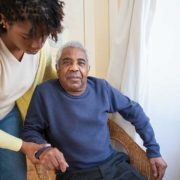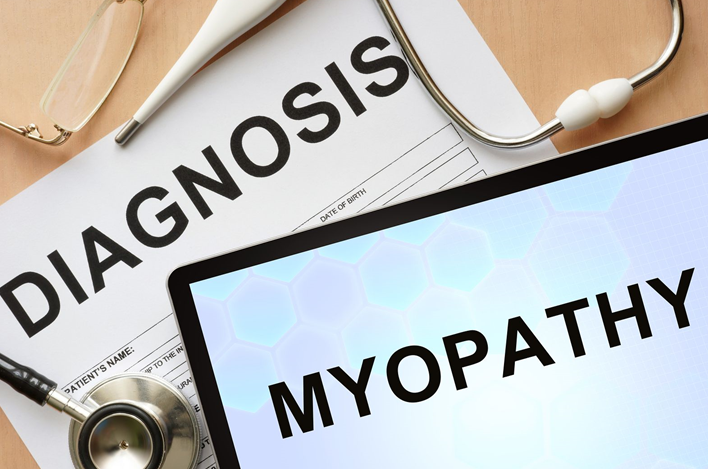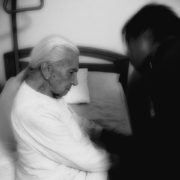Experiencing Dizziness? 4 Instances of Dizziness and Why You Should See a Neurologist
Dizziness can be felt in many ways. It can encompass the feeling of being lightheaded, woozy, vertigo (spinning), fear, and imbalance. It affects the sensory organs such as the eyes and ears. Dizziness is not a disease in and of itself but is a symptom of various disorders—some minor, some serious.
Dizziness is a common complaint but should not be treated lackadaisically. If you are experiencing any of the following issues: dizziness in the elderly, dizziness related to COVID-19, dizziness when standing, and dizziness after eating; make an appointment with experienced Leesburg neurologist Dr. Sarbjot Dulai.
Dizziness in the elderly
Dizziness and imbalance are amongst the most common complaints in older people and are cause for concern since they put older people at a higher risk for falling. Age related degeneration of the inner ears and neck are key causes of dizziness in older people. The increased risk for dizziness coincides with the reduced function of the balance and postural muscles, so older people who have dizziness symptoms are more likely to fall than a younger person.
There are many underlying causes of dizziness in the elderly and it varies widely. Some of these factors include neurologic, cardiovascular, and visual. That is why it is important if you or a loved one are suffering from dizziness, to visit an experienced neurologist in Leesburg, Virginia.
Dizziness related to COVID-19
Although the predominant presentation of COVID-19 is with respiratory infection, neurological symptoms are now being recognized more and more. Among these new symptoms is dizziness, vertigo, weakness, and headaches.
Since these symptoms are now being seen before the more commonly known symptoms of infection in some patients, it is more important than ever to be aware of your symptoms and to seek help from your Dulles neurologist. It is also important to continue following safety protocols such as social distancing, respiratory hygiene, and wearing a face covering in public settings.
Dizziness when standing
Some people may experience dizzy spells after they suddenly sit down or have been standing for a few minutes. This type of dizziness can be caused by a gradual drop in blood pressure, diabetes, dehydration, or an inner ear problem. However, the most common reasons are two conditions known as postural hypotension or orthostatic hypotension. These conditions can cause a patient to have a sudden fall in blood pressure, causing a shortage of oxygen to the brain. This can also cause lightheadedness, weakness, fatigue, nausea, and loss of consciousness.
Dizziness after eating
Some medical conditions or food sensitivities can trigger dizziness after a meal. Typically, blood sugar usually rises after a meal. The rise in blood sugar after eating is why people who feel dizzy before eating often feel better afterwards. However, when blood sugar drops after a meal, it can cause dizziness. People with diabetes or pre-diabetes may experience blood glucose drops after a meal.
Again, low blood pressure could be another reason for experiencing dizziness after eating. People with high blood pressure can develop hardening and blockages in the arteries, which can make it more difficult for blood to flow to the brain when it is also flowing to the digestive system. This reduced blood flow to the brain can result in dizziness.
Consult a Neurologist
Do not wait until your dizziness becomes unbearable that it affects your daily life. Play it safe and visit Dulles neurologist Dr. Dulai. Due to COVID-19 the office is now offering telemedicine appointments for online consultation and where necessary scheduling office visits as well. You can call Neurology Associates at (703) 726-6393 to schedule a consultation.














